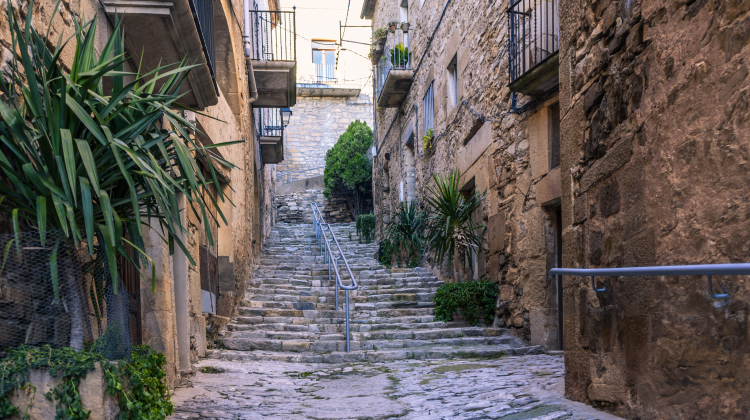Describing people is one of the most frequent things we do daily. We might be talking to a friend about that new classmate, boss, or neighbor… or that one on the bus who is lately driving you mad! Descriptions are all around, not only on those everyday chats but also in more formal contexts such as articles, news, or books. The same as descriptive adjectives make us visualize and fully comprehend what those we are referring to are really like, personality adjectives help us get a more accurate and precise idea about what people might act like. Then, it is very important to know how to use Spanish adjectives to describe a person, since just a simple word might change our listener's perception of the reality we want to show. What we intend to put into words is not always what we indeed say.
Making a good description implies being ordered and concise, highlighting those distinguishing details and omitting those which say nothing special about the person being described. For instance, saying someone is the medium height (de estatura media) wouldn’t say much.
Let’s see, then, some of those distinguishing adjectives, comparisons, or idioms which would best describe someone’s unique features.
GENERAL APPEARANCE: HEIGHT AND BUILD
The standards of beauty imposed by today’s society make us consider some adjectives to be pejorative:
Bajo (short), gordo (fat), barrigudo (potbellied), canijo (short & frail)
Thus, in an attempt to be polite we use the diminutive suffix to turn them into positive adjectives: BAJITO, GORDITO. At least, by doing so, we show certain fondness and affection towards them.
On the other hand, we do have positive adjectives:
Alto (tall), corpulento (stocky), esbelto (tall and thin), atlético/Deportivo (athletic), delgado (thin), cachas (slang word for muscular)
We do also use comparisons and idioms to refer to the physical appearance:
SER alto como un pino (tall as a pine tree) or SER delgado como un fideo (thin as a noodle)
ESTAR como una foca (to be like a seal), which means very fat, ESTAR como un toro (like a bull), very strong, ESTAR como un tren (like a train), very attractive, or ESTAR en los huesos (in the bones), skinny.
UNIQUE PHYSICAL FEATURES AND CHARACTERISTIC CLOTHING
FACE:
Ancha (wide), rolliza (chubby), fina (thin), chupada (literally: lick. Meaning: skinny). Curtida (weather-beaten), desmejorada (deteriorated), fesca (fresh), jovial (cheerful), serena/tranquila (relaxed).
EYES:
Ausentes (absent), inexpresivos (expressionless), tristes (sad).
Despiertos (literally:awake, Meaning: bright,smart), expresivos (expressive), penetrantes (deep), vivos (lively), intensos (intense), soñadores (dreamy).
LIPS:
Finos (thin), carnosos (thick)
NOSE:
Chata (flat), aguileña (eagle-like), puntiaguda (pointed), torcida (crooked)
CLOTHING:
Elegante (Smart), informal (casual), discreta (modest), sofisticada (chic), chillona (loud, flashy), hortera (tasteless, de etiqueta (formal, black-tie)
PERSONALITY ADJECTIVES:
There are lots of adjectives to describe personality… It must be because we are all unique human beings, and thus, we need thousands of words to describe each of our distinctive attributes.
I have chosen some which might imply some difficulties when learning Spanish, either because they are false friends or advanced level vocabulary.
Remember they describe what you are like, and so, they must be used with the verb SER, and not ESTAR, as the meaning might be different. Ex. ESTAR atento = you pay attention, SER atento = you are thoughtful, responsive)
Positive: amable (polite), educado (polite), alegre (cheerful), SER atento (attentive, thoughtful), SER listo (intelligent), SER despierto (witty), campechano (good-natured), risueño (smiling).
Negative: atolondrado (flighty), huraño (hermit-like), intratable (hard to deal with), bobo (naïve), burlón (mocking), fanfarrón (big-headed), chulo (cocky, bold), presumido (boastful), SER orgulloso (arrogant), creído (conceited, vain).
Of course, this is just a brief selection of Spanish descriptive adjectives which can help you describe people by outstanding their most peculiar features, those that make them unique. There are some positive and some negative Spanish adjectives to describe, both, physical appearance and character, but don’t be categorical when describing, and choose the right one, so you really say what you mean. Being polite is a must, after all, we are all fellow men.







